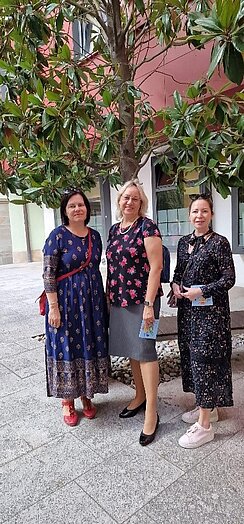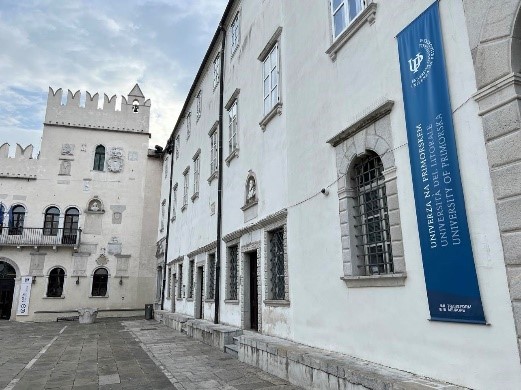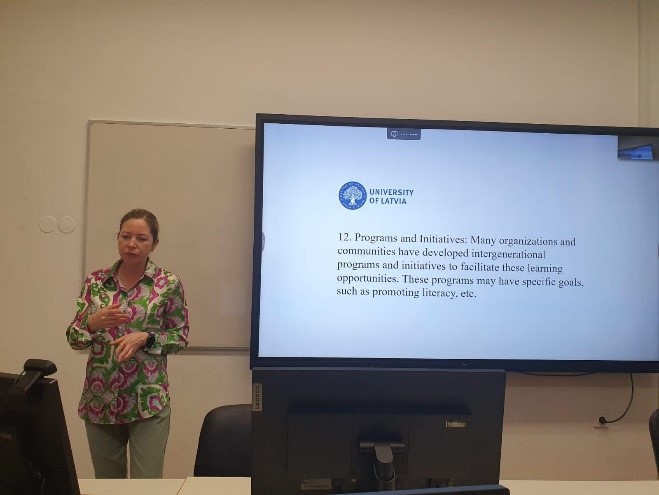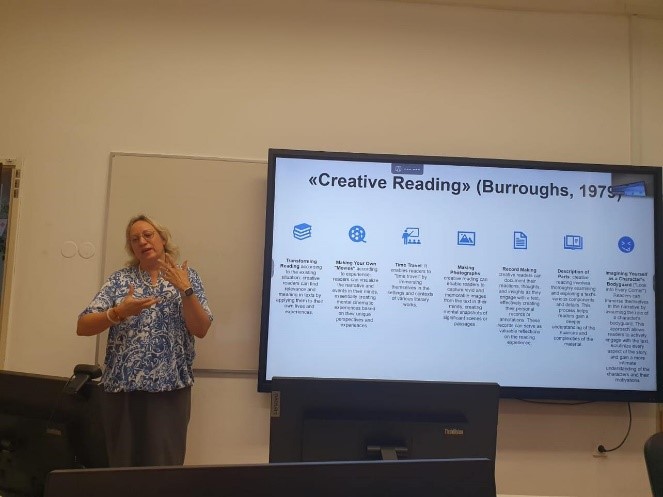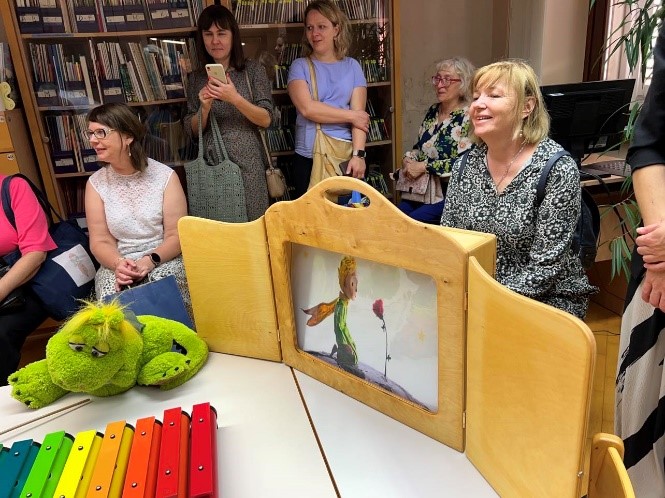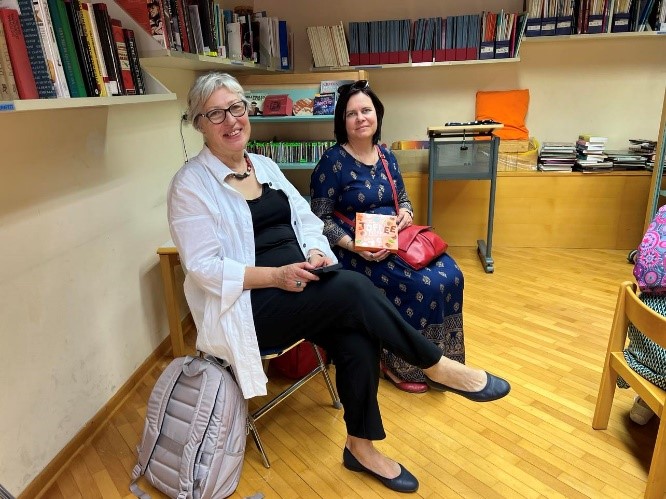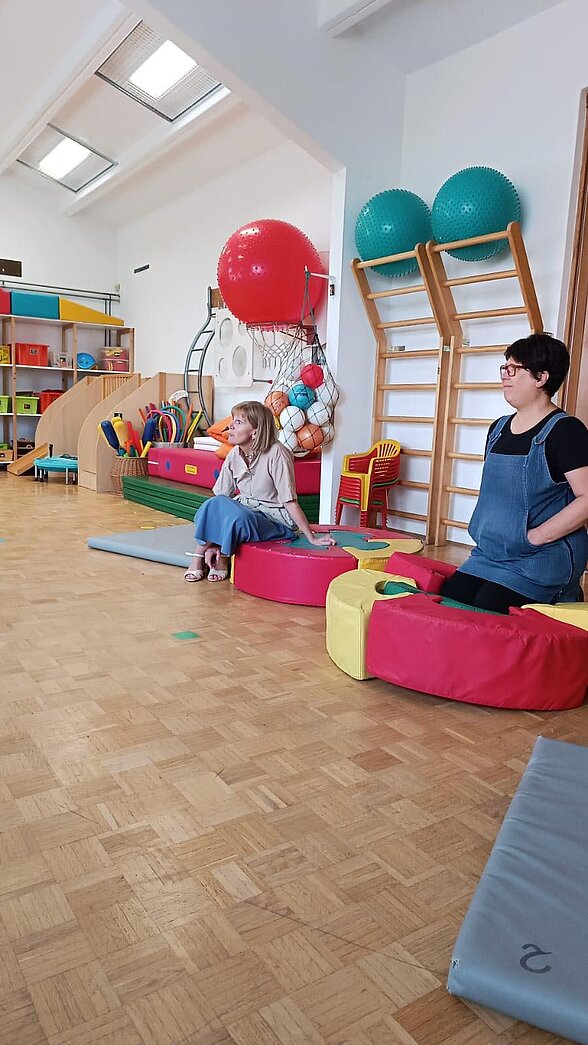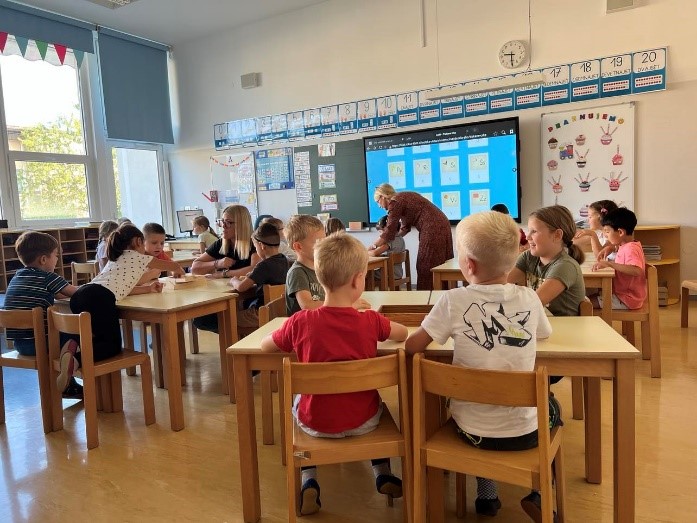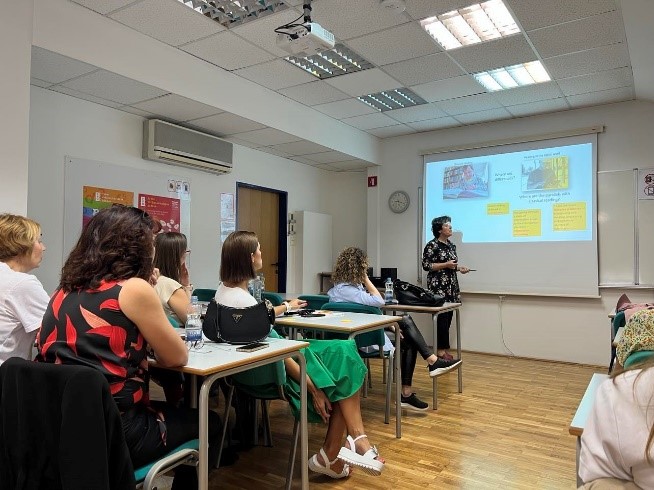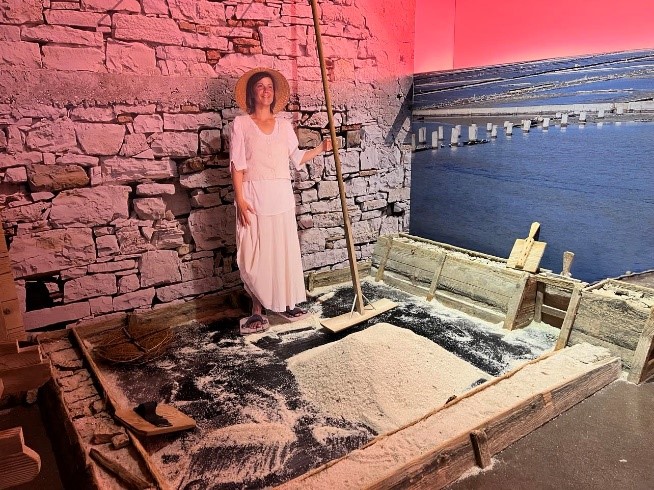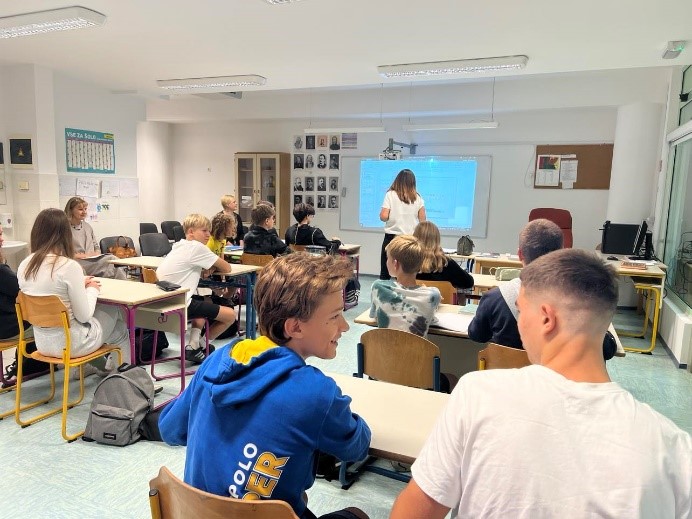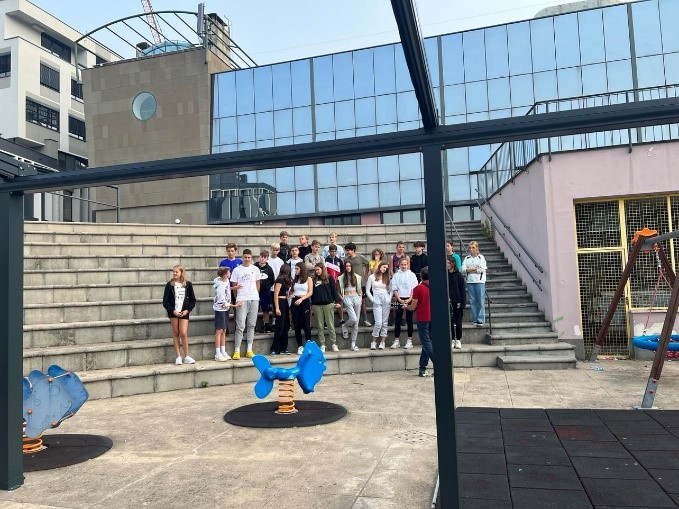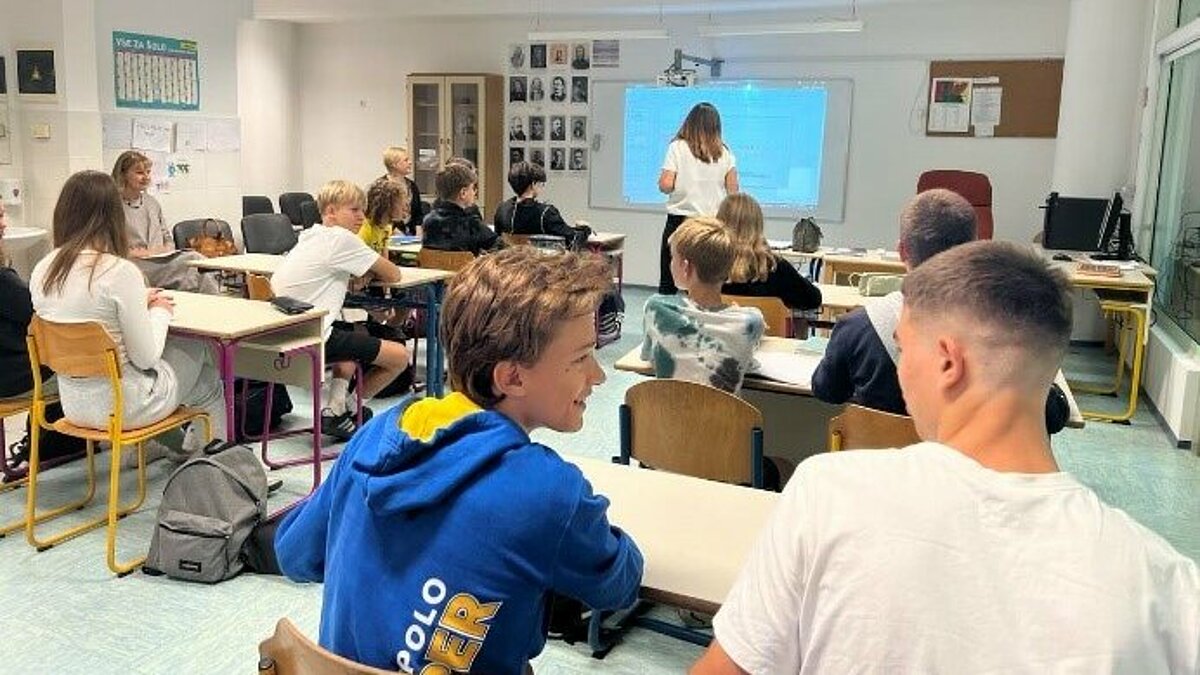
From October 9 to October 15, faculty members of the University of Latvia, the Faculty of Education, Psychology and Art I.Odiņa, L.Grigule, A.Stavicka and I.Margeviča-Grinberga participated in Erasmus+ KA220-HED – Cooperation partnerships in higher education programme project "Developing Reading Skills With and Through Digital Technologies" (eRead) (Project No. 2022-1-EE01-KA220-HED-000089331, LU No. ZD2023/21499).
The project aims to improve approaches to language teaching using digital tools. The project workshop took place at the University of Primorska in Koper, Slovenia and was attended by project partners from Narva College, University of Tartu, Estonian Integration Foundation, Rakvere Rohuaia Preschool, University of Latvia, Latvian Language Agency, University of Primorska, Koper National University, Harkiv National University, Zaporizhia National University. Nineteen classes and lectures on literacy development from pre-school to adult education were held. Anna Stavicka, assistant professor at the University of Latvia, presented research on intergenerational learning to develop literacy and Ieva Margeviča-Grinberga, associate professor at the University of Latvia, talked on the use of creative reading in the study process.
On the first day of the project seminar, the participants took part in the practical session "Library Support in Literacy Development". The librarians demonstrated Kamishibai (Japanese paper game) literacy activities for preschool children. Kamishibai story theatre slows down storytelling, promotes participation and the development of concentration skills. The storytelling uses both familiar stories and new stories; or own stories and cards can be created. It is also a great way to develop and explore vocabulary in any language.
In the first half of the second day, the project participants observed classes at a pre-school in Bertoki, where methods for developing pre-literacy skills were demonstrated.
On the third day, the project partners visited the Vojka Šmuc Izola Primary School, where they analysed literature lessons in Forms 1 and 4. The school has students from more than 15 countries. Therefore, special attention is paid to learning Slovenian as the national language.
On the fourth day, the activities took place at the Koper Adult Education Centre, where the project participants discussed the promotion of adult literacy in a second and a foreign language. Participants from Ukraine, Russia and Serbia also took part in the discussion. In the afternoon, the project participants had the opportunity to explore the possibilities of literacy development through museum education in the salt ponds of Sečovlje.
On the fifth day, the project participants observed classes at the Italian school Pier Paolo Vergerio il vecchio (Italians are an official minority in Slovenia). Teachers demonstrated the textbooks and literacy resources they have developed for minority pupils. Pupils also took part in discussions on language learning.
As a result of the project workshop, examples of good practice and theories for promoting literacy development were identified to start developing a module "Teaching Reading Digitally" and integrate it into language teaching methodology courses for undergraduate teacher education students; to develop a professional development course for language teachers to promote literacy development in the national language of instruction; and to develop a digital self-learning course to improve language skills in Estonian, Slovene, Ukrainian and Latvian for citizens of partner countries.
The next e-Read partners' meeting is planned for spring 2024.



 Academic Centre
Academic Centre